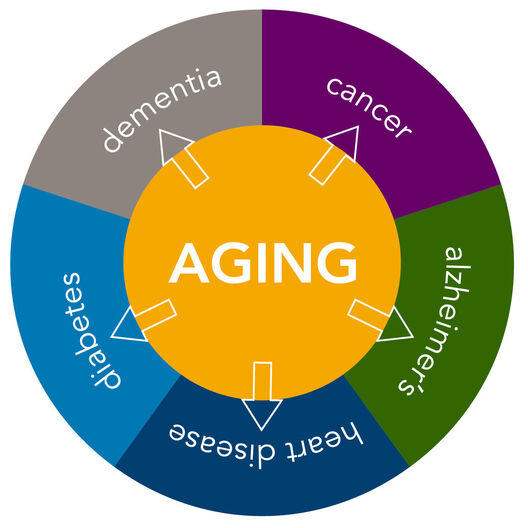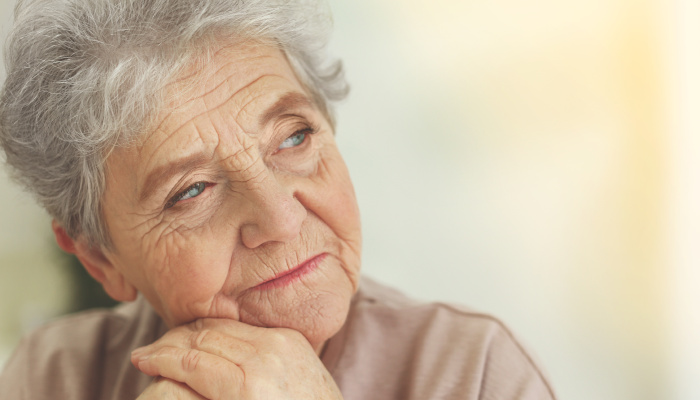Our elderly population is growing rapidly. Advanced healthcare system leads to population aging, and dealing with age-related diseases, such as cardiac diseases, dementia and diabetes, becomes a major issue in human society. However, rare people know that these age-related diseases not only affect one’s physical health, but also bring about mental health issues. In Beijing, as people now pay much attention to age-related diseases and the physical health of older adults, such mental health issues caused by age-related diseases are often not taken seriously enough, even though this city has the best health services and medical resources in China.

Age-related Diseases and Mental Health
It might be confusing that why elderly’s mental health issues could be attributed to age-related diseases. In fact, several reasons makes age-related diseases an important cause of psychological issues.
- Panic: Getting ill generally makes patients panic, especially when they have little knowledge about their conditions. Due to the concerns of their health, elderly people are often credulous of rumors about age-related diseases. Such unreliable and exaggerated information causes them to be anxious and pessimistic, leading to anxiety and depression.
- Disability: Age-related diseases could disable the patients. Without proper caring and comforting, elderly people could feel embarrassed or ashamed of showing their disabilities in front of others and tend to stop socializing. Since sociability is an important factor affecting elderly’s mental health, such a tendency could be dangerous.
- Pain: Pain is a common physical symptom closely related with diseases, but it should be treated independently sometimes because pain experience varies for each individual. In some conditions, pain experience could sometimes be too severe to be understood by caregivers and cause excessive concern and fear of getting injured, aggravating the patient’s feeling of loneliness and anxiety.
- Cognition Decline: Several common age-related diseases are related with cognition decline. According to a recent study, depressive symptoms of elderly people are negatively associated with cognition. In other words, as cognition worsens, patients tend to have increasing depressive symptoms.
Some people might not be aware of the seriousness of this issue since psychologists suggest that elderly people are happier and less likely to be bothered by mental issues than people in other life stages. However, it doesn’t mean that all elderly people are happy. Our disregard for elderly people bothered by mental issues will make it more difficult for them to get help.
Having mental health issues in old age leads to serious consequences. Mental issues such as anxiety and depression can make patients feel exhausted and cause insomnia. They could hinder the curing process while also lowering immunity and increasing the chance of getting other age-related diseases. Moreover, scientists predict that there will be a growth in the number of older adults with mental health issues in future years. In particular, it is said that the number of older adults with mental and behavioral health problems “will almost quadruple, from 4 million in 1970 to 15 million in 2030”.

Conditions in Beijing
Under most circumstances, the issue can be easily solved by promoting psychological care in nursing homes. However, nursing homes aren’t popular in Beijing due to cultural differences. Normally, we’d rather take care of elderly relatives ourselves. Indeed, such a tradition has its advantages. Older adults at nursing homes often report frequent loneliness and sadness and a lower level of life satisfaction. Such circumstances would definitely be improved with the support of family. However, older adults taken care at home could still get mental issues, and the disadvantage of having family members as caregivers is that they are often unprofessional. For unprofessional caregivers, it is often hard to notice when psychological issues appear, not to mention reacting properly. A group of researchers studying depression score of Alzheimer’s patients in Beijing found that in some cases, there was antidepressant on the patients’ prescription, but the primary caregivers mistakenly believed that the patients were completely psychologically healthy because they could neither recognize the name of antidepressant drugs nor notice the patients’ abnormal behavior.

Considering the flaws of caring provided by family members, some people may propose change the traditional thought that sending elderly people to nursing home is a sign of disrespect and heartlessness and advertise for the reliability and professionality of nursing homes. Indeed, such a proposal can avoid all the problems brought by home caring, but it also causes new problems. First of all, leaving the familiar environment and lacking the company of family causes a higher rate of loneliness and unhappiness. Moreover, changing a traditional view isn’t as easy as it seems. Family is an important notion of Chinese culture. Some elderly people would rather give up the chance of being more professionally cared for to stay with their children and grandchildren. Most importantly, a good nursing home requires clean and comfortable environment, expensive health equipment, and professional health workers with both medical and psychological knowledge but only receives limited support from the government. Therefore, most of the cost can be earned from the clients, resulting in a high price of the service and making good nursing home and professional care unaffordable for common family. In fact, some suburbs of Beijing don’t even have any nursing home due to poverty. So, the proposal is totally unrealistic. All in all, the issue brought by family caring cannot be simply avoided. It needs to be faced with and solved by making family caring more professional.
So, what are the effective solutions?
One way to make family caring more professional is to publicize knowledge about psychological issues of older adults. There is one thing to be noticed about publicizing: we cannot expect normal people to just learn everything and become psychologists at home. Therefore, knowledge publicized should be carefully chose. It should not be theoretical or too difficult so that everyone can simply practice it without being trained or instructed. For example, it could be some easy ways to avoid psychological issues, such as informing the patients of their condition, encouraging socializing, and paying attention to the patients’ sleep quality, but it should not be the symptoms of depression and anxiety and how to diagnose these disorders. Despite that, publicizing is a very simple method. It could be done by encouraging volunteer program, releasing advertisement, or putting up posters. In general, although publicizing could not make people real psychiatrists and solve issues like late diagnosis and lack of medical care, it is enough to make family caring more professional and promote elderly’s quality of life.
To complement the solution above, we need help from the government. Fortunately, the government is already working on it. There is a national program called “Internet + healthcare and nursing of elderly people” aiming to make it more convenient for older adults to regularly check their body conditions using internet. The primary products of this program can collect data on internet and analysis them to examine the physical health of older adults. The problem is that although the products are designed to be mentally comforting for older adults, it hasn’t included the function of examine mental health condition yet. To add this function, the only thing needed is a self-rating scale. Several existing scales can serve as references, such as the DASS 21 (Depression, Anxiety and Stress Scale – 21 Items), the CES-D (Center for Epidemiologic Studies Depression Scale), and the GDS (Geriatric Depression Scale). Eventually, the scale doesn’t have to be complicated and come to specific conclusions of the patients’ psychological conditions. It only needs to point out the patients’ possibility and tendency of having psychological issues and convince the patients to go to the doctor and receive treatment. Psychological issues have long been neglected in China. Beijing’s reported rate of psychological disorders is much smaller than the rates of other metropolises. We should raise more attention to mental health. At least this time, when it comes to the quality of life of elderly people, psychological issues shouldn’t be ignored.
